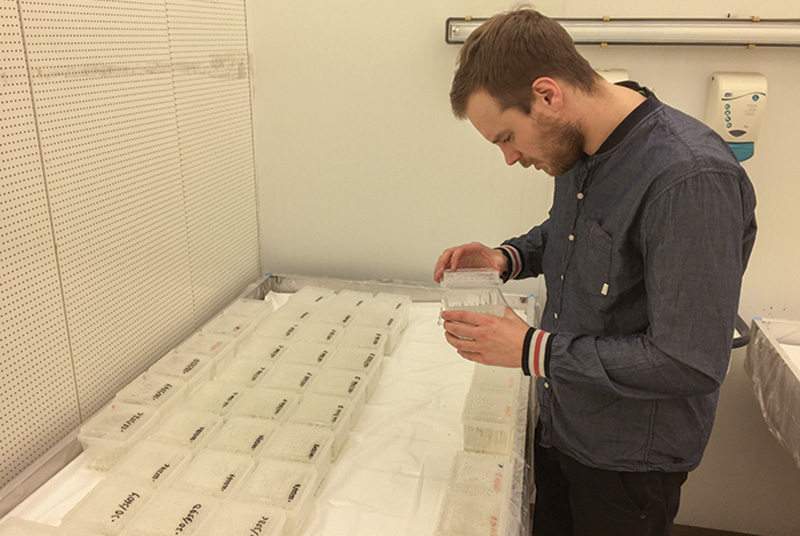
I can only speak from one perspective on religion or faith: the Christian faith. My knowledge and experience with other faiths, such as Islam and Buddhism, or atheism or agnosticism, is not sufficient to even touch those areas. However, some of my thoughts along the lines of my Christian faith will have some relevance to others outside of that arena. This topic is so complex that I cannot provide even a brief overview in one article, so I will begin with an introduction to the subject from my perspective as a lifelong Christ follower and a Ph.D. scientist of 44 years. Because of what I do, I have put a lot of energy and thought into this issue for at least 40 years.
My experience has indicated there is a wide chasm between faith and science, and recent surveys and studies support this. The apparent conflict between faith and science is not new. We can find many instances going back centuries to Copernicus, Kepler and Galileo in the 1500s and 1600s. In those days, a literal interpretation of the scriptures in the Bible told followers that the whole universe revolved around the earth. Careful observations by brilliant scientists began to call this into question and promoted a theory that we orbited around the sun. Needless to say, that created quite a stir, and some scientists feared for their lives and were viewed as enemies of the church.
We can go to a time within the last hundred years that encouraged faith versus science arguments, and that was regarding the Scopes monkey trial. It was a trial in Tennessee in 1925, and the case focused on a high school biology teacher (John Scopes) and his desire to teach evolution in the classroom. The trial became a three-ring circus and, in the end, became all about the two flamboyant, politically inclined attorneys, Clarence Darrow and William Jennings Bryan.
The two attorneys promoted it as the trial of science versus the Bible, and even in those days, the media picked up on it and ran with it. The word “evolution” became the lightning rod for the battles between good and evil, science versus the Bible. The whole trial was nothing more than a publicity stunt, with the defendant, John Scopes, not even sure if he’d ever taught evolution in the classroom.
Ultimately, the press ridiculed the prosecution, and the whole event became something of a joke. The trial was made into a highly fictionalized movie, “Inherit the Wind,” during the time of McCarthyism in the U.S.
We will talk more about the role evolution still plays today in this debate.
First, let me say that being a Christian, being a scientist and being in academia has never challenged my faith. Instead, it has enriched it. I have never felt threatened, looked down upon, discouraged, criticized, persecuted or belittled at my secular university for my faith. Many of my colleagues share a similar faith. I know no colleagues at N.C. State University or any other university who have expressed concerns about being persecuted for their faith at a research institution. I have never been associated with or observed a group of scientists who were out to destroy anyone’s faith in God.
I’ve been doing this for over 43 years. It doesn’t mean it hasn’t happened; it just indicates it’s not prevalent.
However, in the past, there have been times when I have felt isolated as a scientist in my church. There have been incidences of criticism for being a scientist. I have been asked how I can even be a scientist and a Christian simultaneously. More than once, I have heard it stated that scientists are out to destroy our faith in the Bible.
Of course, there have been cases of highly visible scientists who as atheists have attacked the Bible and Christianity. For example, Richard Dawkins, through books such as “The God Delusion,” has taken on a much more adversarial approach toward religion as a scientist. The conflict between science and faith is present in our culture. The big question is: Does it need to be?
In the next column, I will discuss this apparent conflict and some possible options for gaining insight and clarity into the issue of science versus faith.
I recognize that deeply held beliefs rarely change. There will be no attempt to change anyone, just my story of how my understanding of science has enriched and encouraged my faith and allowed me to resolve apparent discrepancies.
Check out www.biologos.org to discover some of the discussions on this topic.
Rick Brandenburg, Ph.D., is a turfgrass entomology professor at North Carolina State University in Raleigh, a post he’s held since 1985. The 28-year GCSAA member is also a frequent presenter for GCSAA, both in webinars and at the annual GCSAA Conference and Trade Show.